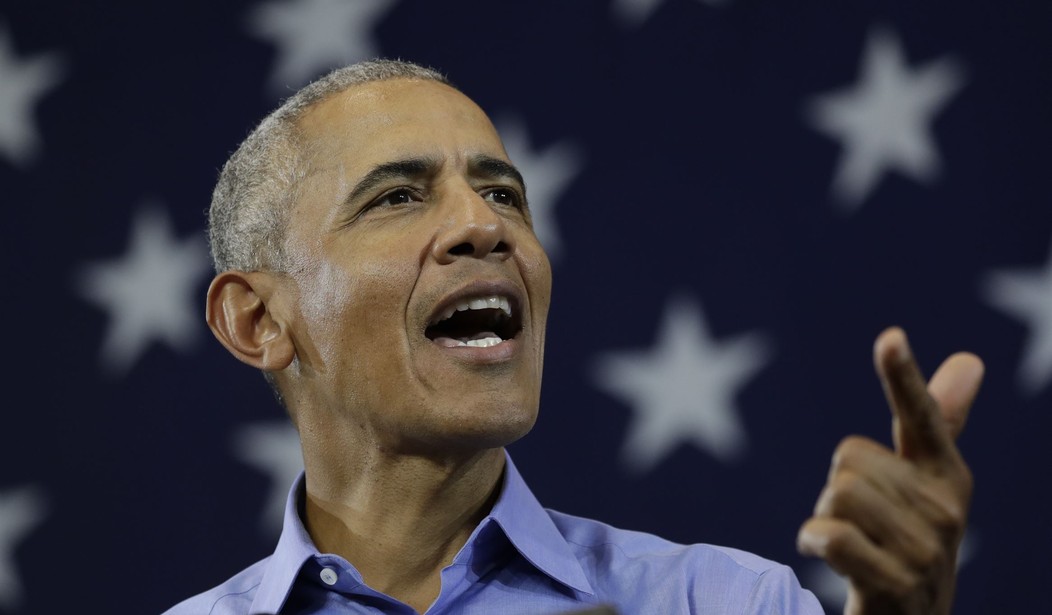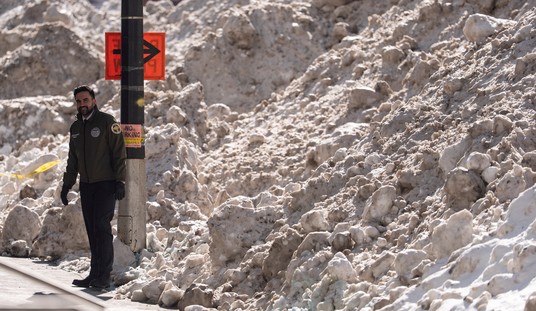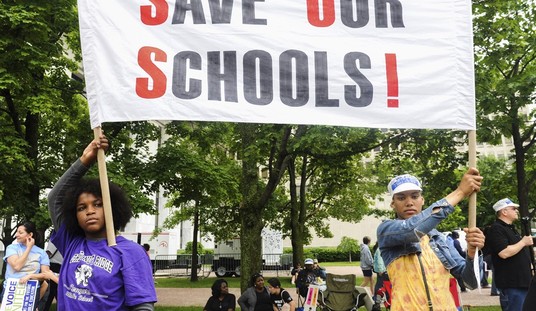There’s a fascinating article from Tablet Magazine that has a lot of people talking. It’s an interview done by Tablet editor David Samuels with historian David Garrow, who wrote a biography of Barack Obama in 2017, “Rising Star: The Making of Barack Obama.” It’s a fascinating dive into the mind of someone who thinks very highly of himself (Barack Obama), but it lays bare a lot of his insecurities and the way that he sort of fabricated/invented who he was, according to the article. But it’s incredibly long, so we’ll hit the highlights here.
One of the things that was fascinating was that the author contacted Obama’s old girlfriends and had some access to old love letters that Obama wrote. That was a fascinating window into his thoughts and how he’d changed over the years. One aspect is getting a lot of attention — it’s the letter about the sex with men fantasies. Garrow says that was the most surprising thing in the letters.
With Alex [McNear, Obama’s girlfriend at Occidental College], I think she wanted to have her role known. So when Alex showed me the letters from Barack, she redacted one paragraph in one of them and just said, “It’s about homosexuality.”
And then sometime, right about when Rising Star came out, Alex indirectly sold the original, sold those letters, and they ended up at Emory. So Emory put out a press release saying, “We’ve gotten these rare letters by Barack Obama.” And no mention of this paragraph that was too sensitive. None of the papers mentioned it. Emory didn’t mention it.
So, Garrow sent someone (Harvey Klehr-Harvey) to Emory University to look at the letter, and they wouldn’t let him take pictures, so he had to sit there and copy out the paragraph “where Barack writes to Alex about how he repeatedly fantasizes about making love to men.”
I’m going to guess that Barack Obama is going to have a fit about that getting out.
Then there’s why Obama broke up with his first girlfriend, Sheila Miyoshi Jager. Her account of why they broke up differs from his account of it in his book, “Dreams from My Father.” They had visited Chicago’s Spertus Institute about the 1961 trial of Adolf Eichmann.
At the time there was a big to-do going on in Chicago.
[A] Black mayoral aide named Steve Cokely who, in a series of lectures organized by Louis Farrakhan’s Nation of Islam, accused Jewish doctors in Chicago of infecting Black babies with AIDS as part of a genocidal plot against African Americans.
Jager says that in the wake of that, they broke up because he wouldn’t condemn the anti-Semitism.
Whose version of the story is correct? Who knows. The bridge between the two accounts is Obama’s emerging attachment to Blackness, which required him to fall in love with and marry a Black woman. In Obama’s account, his attachment to Blackness is truthful and noble. In Jager’s account, his claims are instrumental and selfish; he grants particularism to the experience and suffering of his own tribe while denying it to others.
Garrow also pooh-poohs the biographical “fiction” that Obama pushed of himself in “Dreams from My Father,” “He wants people to believe his story.”
There was this blunt paragraph from Samuels that was great to see outside of conservative media.
But while the attention of Republicans in Washington turned to questioning the FBI, more careful observers could not fail to notice that the FBI had hardly acted alone. After all, Russiagate had not originated with the Bureau, but with the Clinton campaign, which having failed to get even sympathetic mainstream media outlets like The New York Times and The Washington Post to bite on its fantastical allegations, was reduced to handing off the story to campaign press apparatchiks like Slate’s Franklin Foer and Mother Jones’ David Corn. The fact that the story only got bigger after Clinton lost the election was due to Obama’s CIA director, John Brennan, who in November and December of 2016 helped elevate Russiagate from a failed Clinton campaign ploy to a priority of the American national security apparatus, using a hand-picked team of CIA analysts under his direct control to validate his thesis. If Brennan was the instrument, the person who signed the executive order that turned Brennan’s thesis into a time bomb under Trump’s desk was Barack Obama.
Then there was the question of why Obama stayed in D.C. even after his younger daughter Sasha graduated from high school. Why did he still want to stay in town? There was a whole lot of thought from Samuels, about the role that Obama was playing.
The election of Joe Biden in 2020 gave the Obamas even more reasons to stay in town. The whispers about Biden’s cognitive decline, which began during his bizarre COVID-sheltered basement campaign, were mostly dismissed as partisan attacks on a politician who had always been gaffe-ridden. Yet as President Biden continued to fall off bicycles, misremember basic names and facts, and mix long and increasingly weird passages of Dada-edque nonsense with autobiographical whoppers during his public appearances, it became hard not to wonder how poor the president’s capacities really were and who was actually making decisions in a White House staffed top to bottom with core Obama loyalists. When Obama turned up at the White House, staffers and the press crowded around him, leaving President Biden talking to the drapes—which is not a metaphor but a real thing that happened.
That Obama might enjoy serving as a third-term president in all but name, running the government from his iPhone, was a thought expressed in public by Obama himself, both before and after he left office. “I used to say if I can make an arrangement where I had a stand-in or front man or front woman, and they had an earpiece in, and I was just in my basement in my sweats looking through the stuff, and I could sort of deliver the lines while someone was doing all the talking and ceremony,” he told Steven Colbert in 2015, “I’d be fine with that because I found the work fascinating.” Even with all these clues, the Washington press corps—fresh off their years of broadcasting fantasies about secret communications links between Trump Tower and the Kremlin—seemed unable to imagine, let alone report on, Obama’s role in government.
But Samuels notes the media which should be doing a job and getting at transparency, did not seem to be interested in the question of Obama’s involvement. “Instead, they had become servants of power, whose job was to broadcast whatever myths helped advance the interests of the powerful,” he wrote.
Samuels says Obama didn’t even have to pick up the phone because all the Obama people are still there, and Garrow noted Rob Malley was still there dealing with Iran. Garrow says he doesn’t understand their obsession with the Iran Deal.
I wrote about how that’s gone south now, with Rob Malley being investigated by multiple federal agencies for what we’re not quite sure yet, although it involves Iran and allegedly classified documents. But the Biden team had been stonewalling Congress about it.
But Samuels notes more of what he heard about Obama’s involvement.
[He]eard from more than one source that there are regular meetings at Obama’s house in Kalorama involving top figures in the current White House, with Secret Service and cars outside. I don’t write about it because it’s not my lane. There are over a thousand reporters in Washington, and yet there are zero stakeouts of Obama’s mansion, if only to tell us who is coming and going. But he clearly has his oar in.
As I reported, Obama did meet with Biden over his concerns about Trump’s strengths.
Garrow says that he believed that Obama was “insecure” in ways that were “not readily perceived by the vast majority of people,” and that “probably was my most basic takeaway.” Because he says Obama doesn’t have an “actual personal story,” he needed to “compose one.”
“For me to conclude that ‘Dreams from My Father’ was historical fiction — oh God, did that infuriate him,” Garrow said. “He doesn’t want the writerliness challenged. It’s my story and I’m sticking to it. The book [‘Dreams’] is so fictionalized.”
Garrow continued: “It’s so inaccurate, whether about the dynamics among the guys in Hawaii or what’s going on in the community group on the far South Side [of Chicago]. And it completely omits women. I’ve always thought that there’d eventually be a feminist critique of Obama because his mother and all the girlfriends — they’re not there. They don’t exist.”
Garrow says Obama wouldn’t be a good candidate for the Supreme Court because, as Obama says, “I’m fundamentally lazy” because he was from Hawaii. That sounds like not a great shot from Obama about people from Hawaii. Garrow says that was “close” to a quote.
Samuels writes:
What I could never understand was Obama’s contempt for the idea of American exceptionalism. Even as president, Obama insisted on poking exceptionalists in the eye, saying that he believed in American exceptionalism “just as I suspect that the Brits believe in British exceptionalism and the Greeks believe in Greek exceptionalism.” Why would the president of the United States feel the need to disabuse his countrymen of the idea that they are special? [….]
For me, the crux of the issue is how Obama always refused to say the words “America is exceptional.” His famous answer was, “Well, I mean, every nation thinks it’s exceptional. So, yes, America’s exceptional in the same way Greece is exceptional.” What a funny thing for the American president to say. Exceptionalism is the main way that the country has always defined itself, and he’s just casually negated that because it annoys him that Americans make such silly claims. I think that dismissiveness was toxic, because nations, in the end, consist of shared symbols and myths. Debunking those myths, and saying the nation is bad, is a recipe for tribalism and fratricide.
That last was one of the things that was so irritating about Barack Obama — denying the greatness of America and what we brought to the world. He seemed to want to humble us. But as we see, that’s an even more prevalent leftist thing now.













Join the conversation as a VIP Member